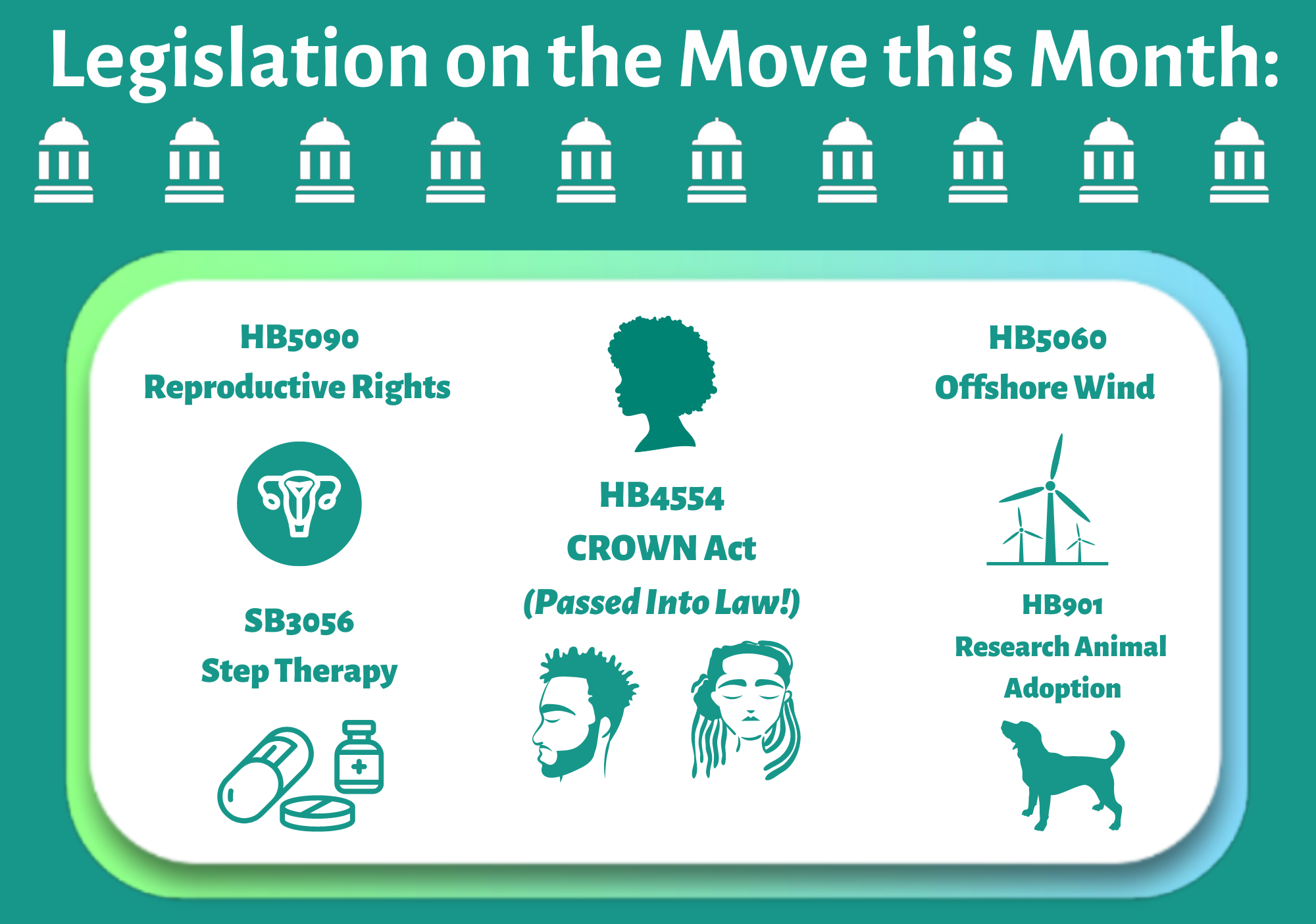
End of Session: Legislation Shifts to Law
As the end of the 192nd legislative session approaches this Sunday, hundreds of bills are being finalized by the legislature, many of which will soon become law. In our blog post last week, we touched on two bills relating to expenditure - the FY23 budget and the economic growth and relief bill. These are among a number of active bills in the legislature that will bring new advancements across the Commonwealth when codified. Many of these important bills have been debated on or enacted with little notice being provided to the public. To show just some of the important work that has been done in recent weeks, we provide a synopsis of a handful of these important soon to be laws:
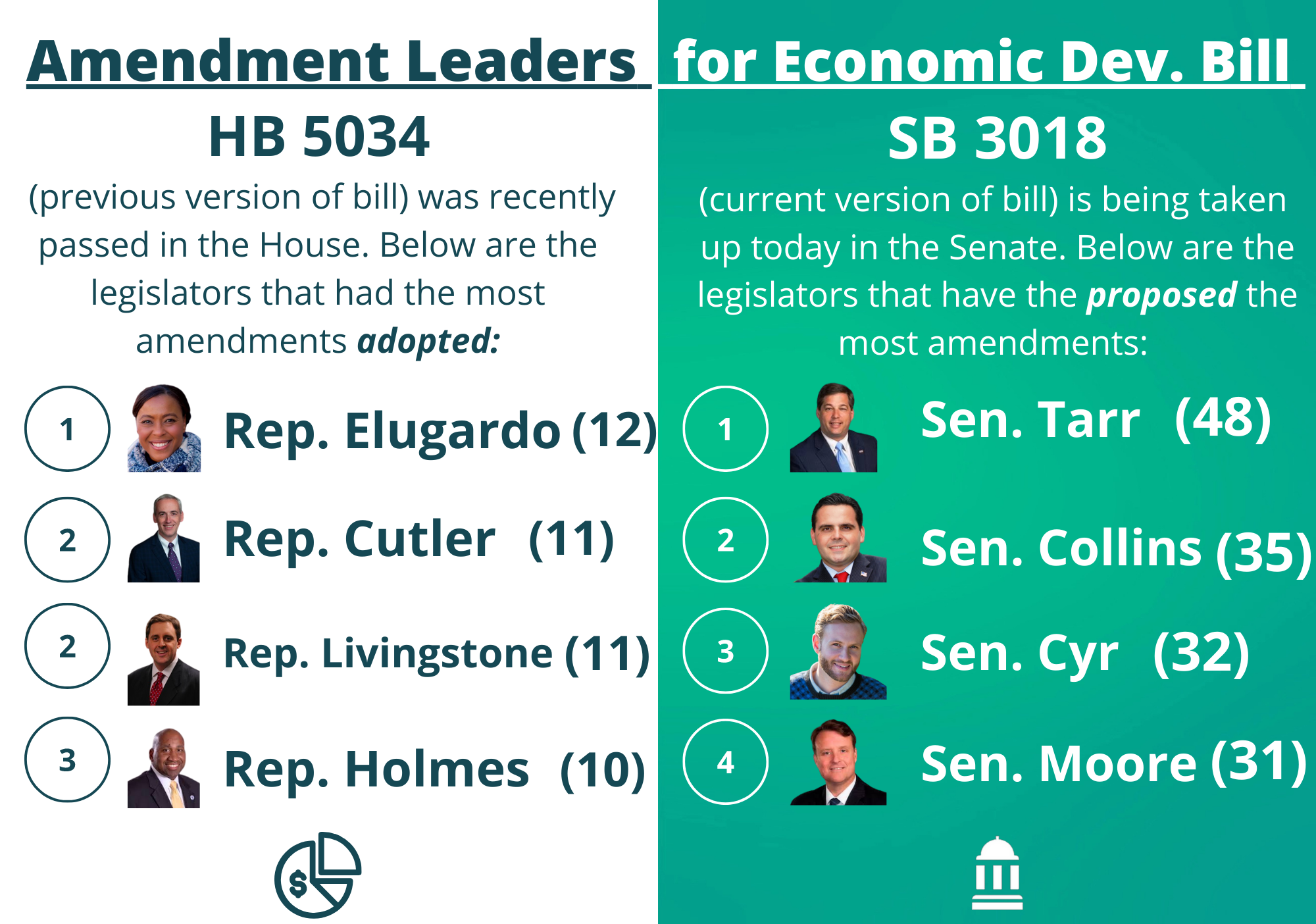
57 Billion Dollars in 5 Days: The Frenzy of July
Over the past five days, the Massachusetts legislature has made significant progress on two major expenditure bills, the FY23 budget and economic growth and relief bill. This legislation, if enacted, will provide over 57 billion dollars of critical support to the Commonwealth over the next fiscal year. With the legislature preparing to take vacation at the end of the month, this has only increased the sense of urgency to get these bills passed. This week, the final version of the 2023 budget, HB5050, was laid before the Governor, and later today, the Senate will take up the economic growth and relief bill, SB3018. While the total allotment of funding may end up changing in the coming weeks, this hurried attempt to rush the legislative process has left many struggling to keep track of everything. For those who may be in this position, we conducted a brief analysis of these bills and their movement thus far.
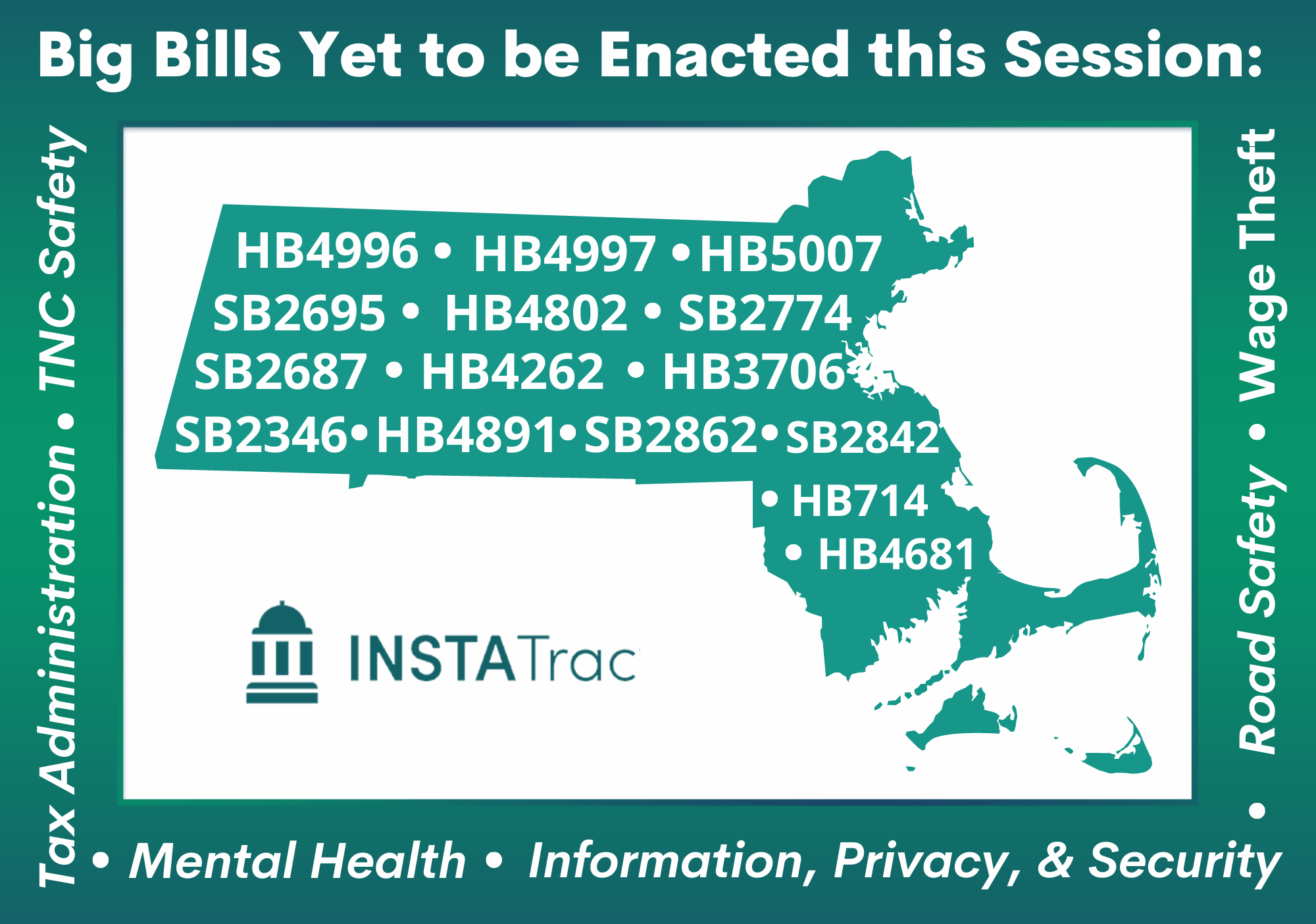
Big Bills Haven't Budged
The end of the 192nd formal session in Massachusetts is quickly approaching, yet many bills still have not been passed. As the legislators take a vacation in August, this has led to a surge of activity this month, with both chambers already taking up a number of bills in formal sessions. However 1,000 bills remain in the joint committee stage alone, and as such, it is unlikely that many of these will be brought before each body prior to the 31st. There are a number of “big bills” that InstaTrac highlights which have yet to be enacted this session. While all legislation is certainly important, these “big bills” are the pieces of legislation often with the most news coverage, client tracks, large expenditures, and cultural impact. The economic growth and relief bill, HB5007, has been the focus of the House this week, and debate will continue today on it. Although not all “big bills” have even made it to floor debate yet, and to better understand where the legislature is at with regard to these bills, we took a deeper look at their progress.
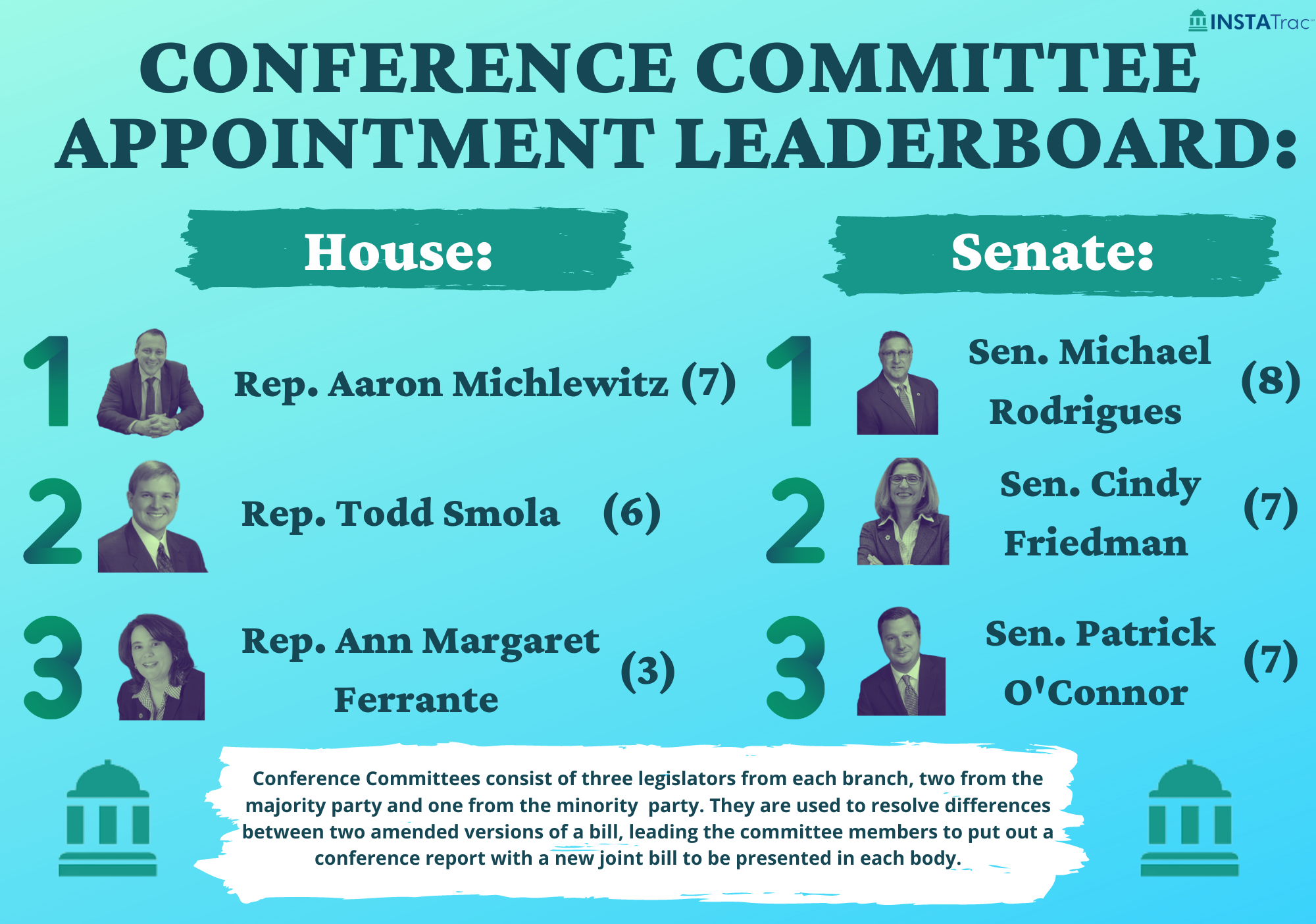
Continued Use of Conference Committees
There are many aspects of Massachusetts state government that allow the legislative process to work both efficiently and effectively. While most steps of the legislative process are known to the public, a bill does not become law simply. For the most divisive and complex legislation, a conference committee will be used to iron out legislative differences between chambers. As such, the conference committee stage of the legislative process is crucial, as it requires collaboration across parties and chambers in order to produce a consensus bill that will be able to reach the Governor’s desk. Our analysis of conference committees from the 2021-2022 legislative session reveals some interesting trends in regard to their usage, as well as the unbalanced appointment process of legislators.
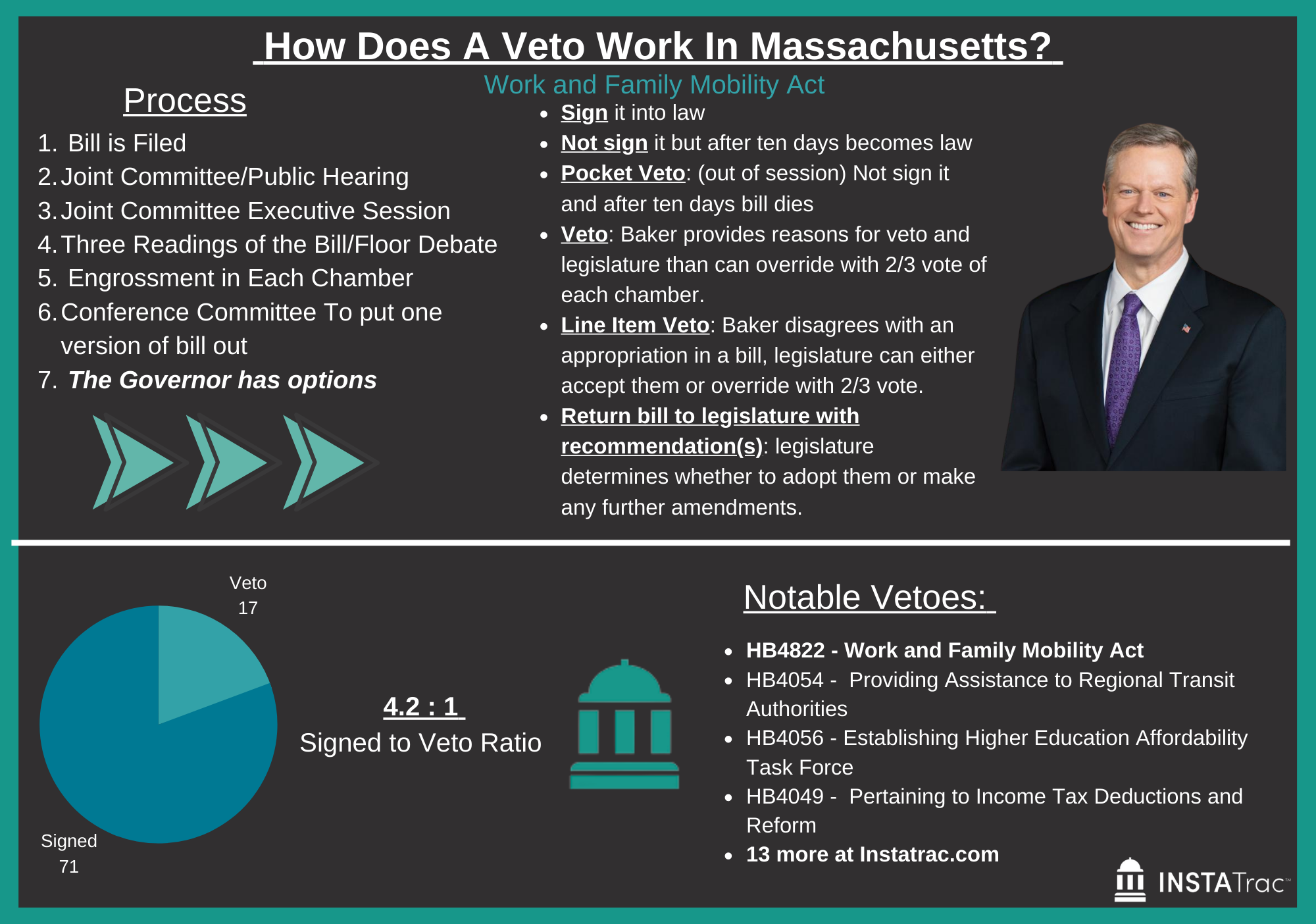
The Power of Veto
Across most levels of government in the U.S., the executive branch holds significant powers that do not exist in other branches. This rings true in Massachusetts, where the governor has a number of privileges, one of the most known being the power of veto. Though many may already be aware that a veto is an executive’s power to reject a bill and send it back to the legislature, very few citizens understand the different types and frequency of vetoes in Massachusetts. In looking at Governor Baker’s actions of the past session, certain trends in his use of vetoes are apparent.
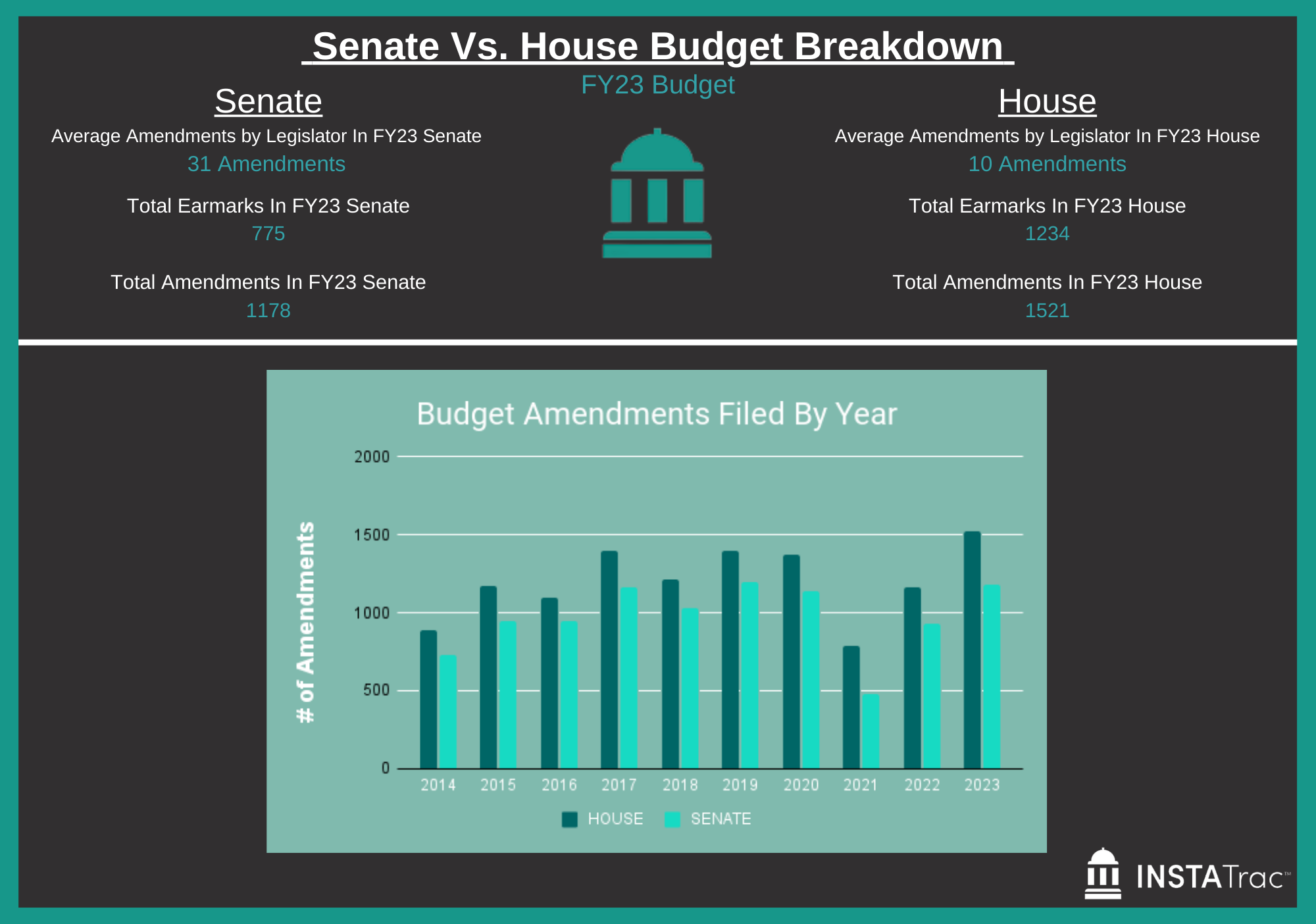
House v. Senate: The Better Budget Proposal:
Over the past month and a half in Massachusetts, the primary focus for the state legislature has been to draft and pass a proposal for the FY23 budget. This year’s budget process has invoked intense debate in both the House and Senate, with deliberations likely concluding in the Senate today. While each proposed FY23 budget allocates practically the same allotment of around $49.6 B, the budgets themselves differ in a number of ways. Looking at our data from this year as well as the past decade, an analysis of each budget reveals frequent differences that have occurred between House and Senate proposals.
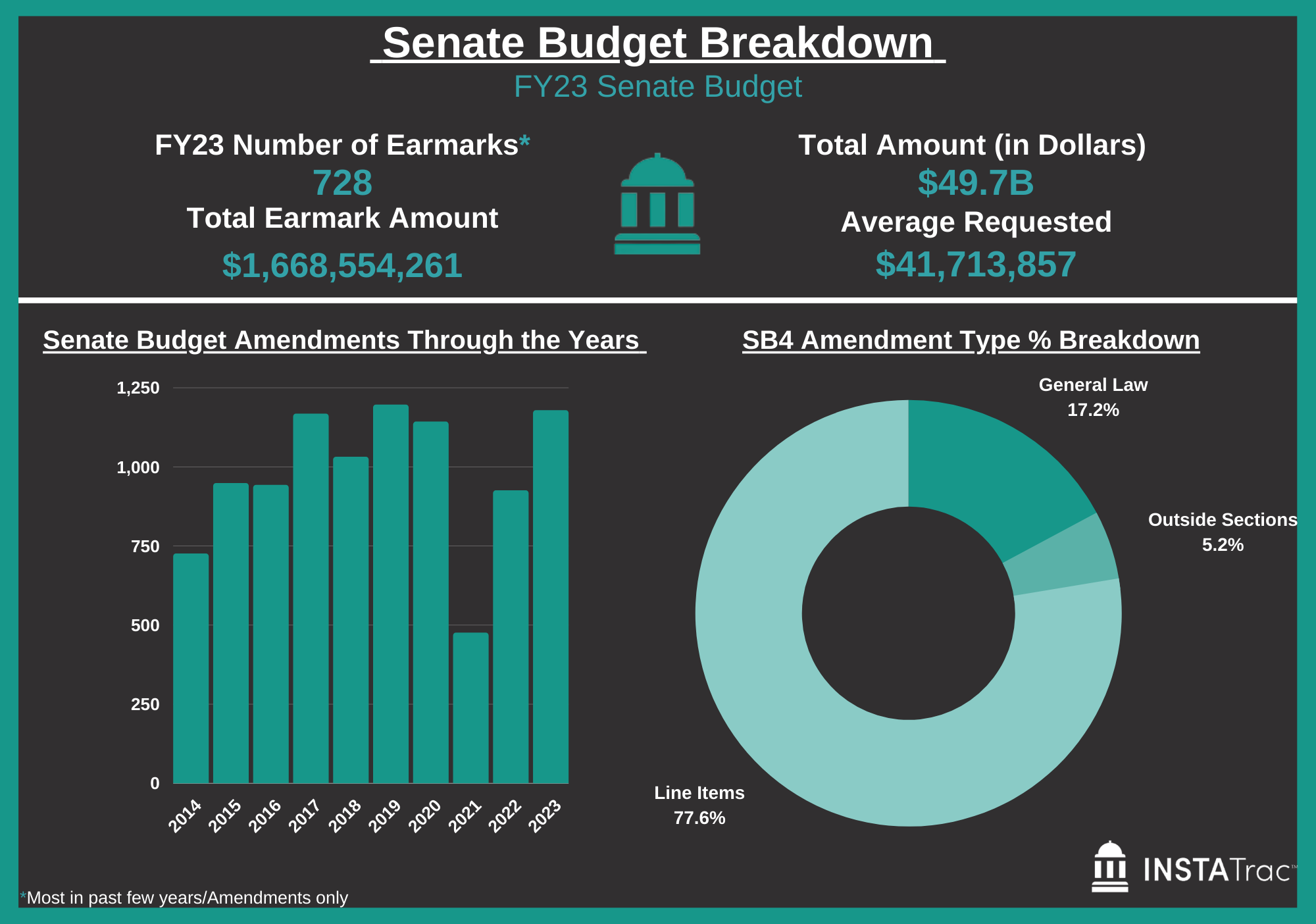
Senate Budget Breakdown - A Decade of Change:
Last Friday at 1:00 PM, the Massachusetts State Senate released 1,178 amendments to their proposed fiscal year 2023 budget, SB4. The budget, which appropriates $49.7B total, funds many initiatives also included in the recent House budget (HB4700), including early education, mental health services, and more. However, SB4 differs in some ways to that of the House’s proposal, as well as in comparison to Senate budgets from previous years. Our detailed look into the past decade of Senate budget proposals reveals some interesting trends in the legislature, and how future budgets may be impacted.

Alito Opinion Aftermath: Abortion Rights Won’t Change in Massachusetts
This past week, much of the nation was shocked when a leaked Supreme Court majority opinion from Justice Samuel Alito showed intent to reverse the decision from Roe v. Wade in 1973. As many know, the Roe v. Wade decision helped make first and second trimester abortions legal across the U.S., but in the wake of its undoing, the legality of abortion will be left up to the states. In Massachusetts, abortion is already a codified state right, thanks to the ROE Act passed in 2020. This and other ongoing legislative efforts exemplify how Massachusetts prioritizes abortion access, but as our data reveals, the state still can be impacted by the Alito opinion.
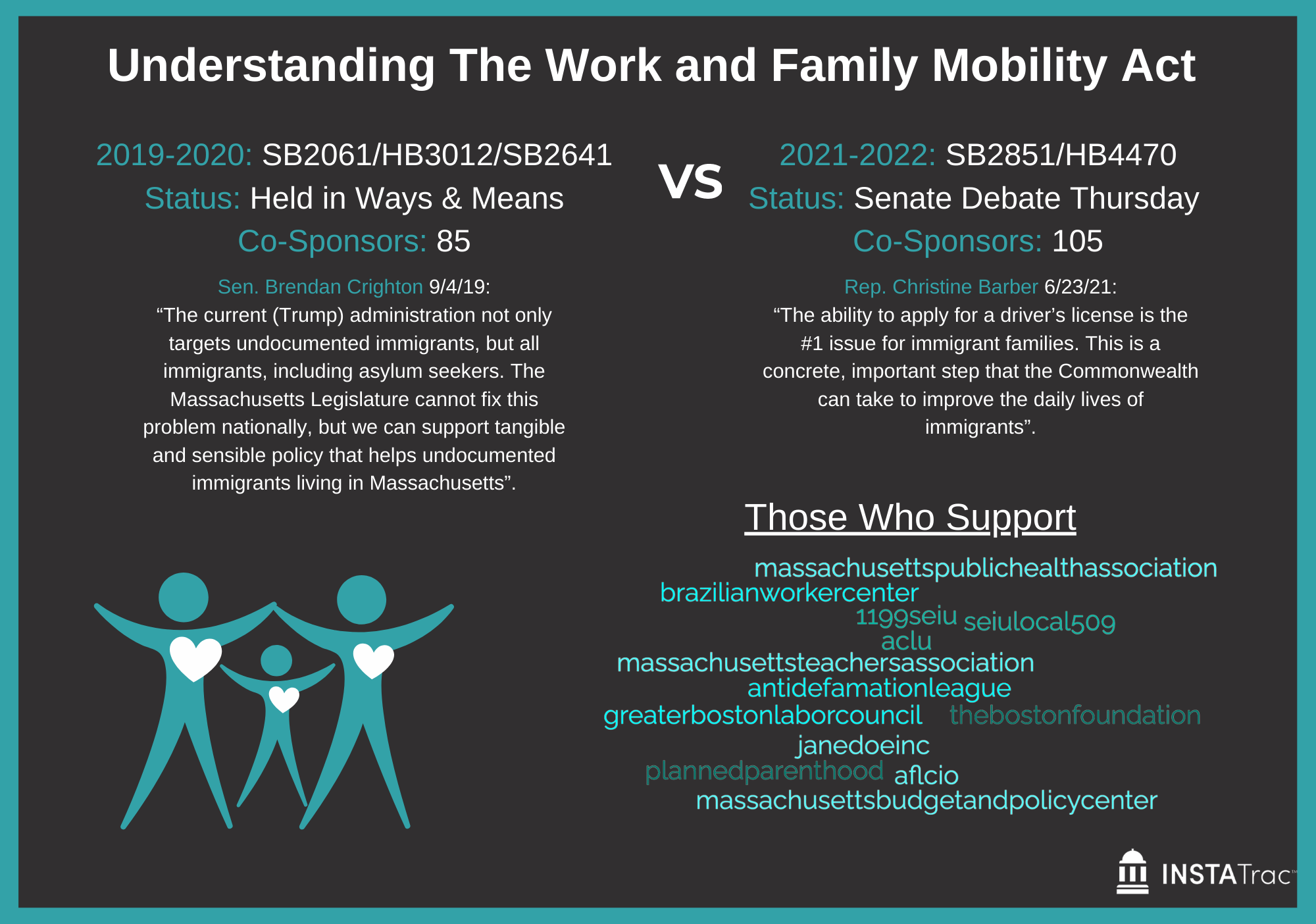
An Overview: The Work and Family Mobility Act
Starting at 11:00 AM today, the Massachusetts State Senate will be debating an important bill for thousands in the Commonwealth, the Work and Family Mobility Act, SB2851. The bill, previously passed in the House (as HB4470) will allow for undocumented immigrants living in Massachusetts with a Real ID (valid or expired) to apply for a driver’s license in Massachusetts. While the license would still differ from a typical driver’s license and primarily provide certain protections for undocumented immigrants in the state, the legislation is a hot button issue. Many Democrats favor the bill’s passage, while many Republicans in Massachusetts are vehemently opposed. Our legislative data helps detail the journey of the Work and Family Mobility Act to this point, and forecasts how it could change through today’s Senate debate.
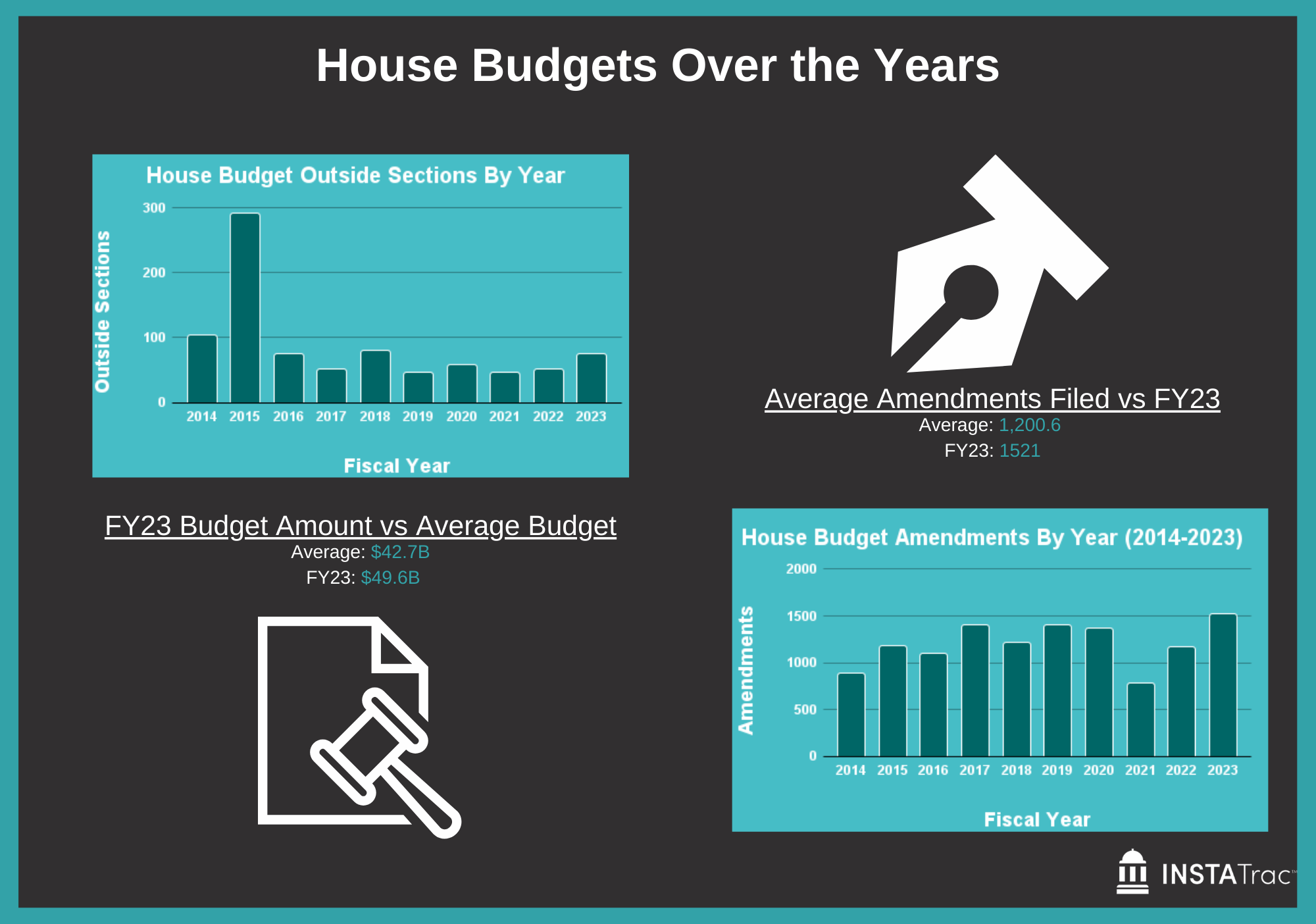
House Budget Breakdown - A Decade in Review
From fiscal year 2014 to fiscal year 2023, there have been many differences between each budget in the Massachusetts House of Representatives. This is in part due to administrative and legislative changes, but also because of the changing needs of the Commonwealth over the past ten years. As debate concluded yesterday evening in the House on the amendments included in the 2023 appropriations act, our data from the last ten years reveals some interesting trends worth noting.

Bring on the Budget Amendments
Last week from 1:00 PM on April 13th to 5:00 PM on April 15th, the Massachusetts House of Representatives released 1,521 amendments to their FY23 (fiscal year 2023) proposed budget (HB4700). In comparison to the House budget for FY22, the proposal in HB4700 had 355 more amendments, marking a 30% increase in the number of filed amendments between 2022 and 2023. This increase in proposed amendments is not atypical of the House of Representatives, but analyzing the budget reveals some interesting trends for FY23 in Massachusetts.
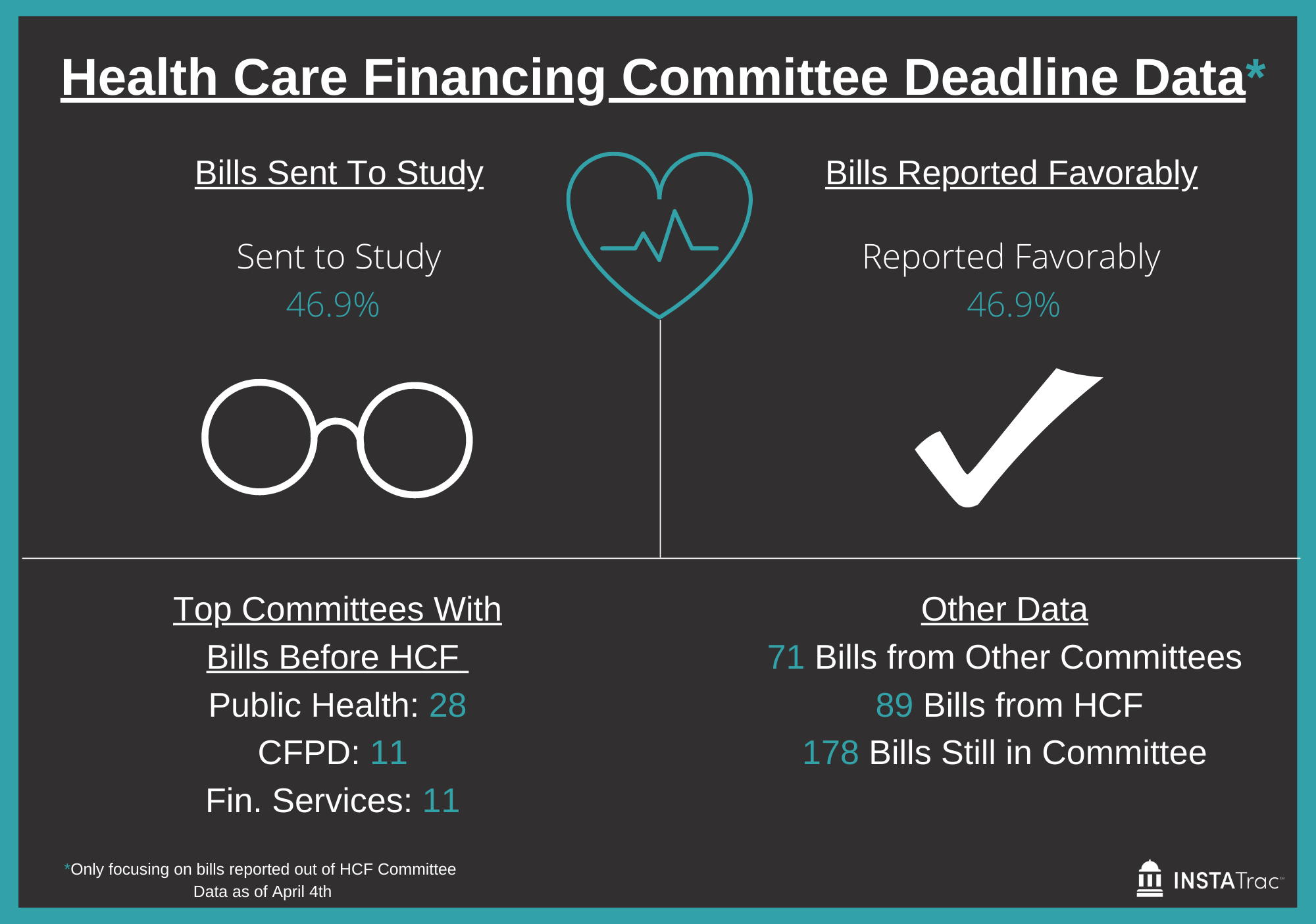
Deadline Data: Joint Committee on Health Care Financing
Each legislative session in Massachusetts includes a deadline for joint committees to report their bills out to the House and Senate floor. For most joint committees, this date was February 2nd of this year. However, one committee differs from the rest: the Joint Committee on Health Care Financing (HCF). Their deadline was last week on March 30th. Our data reveals some interesting trends from this session’s HCF deadline, and how the committee greatly differs from others in the Massachusetts legislature.
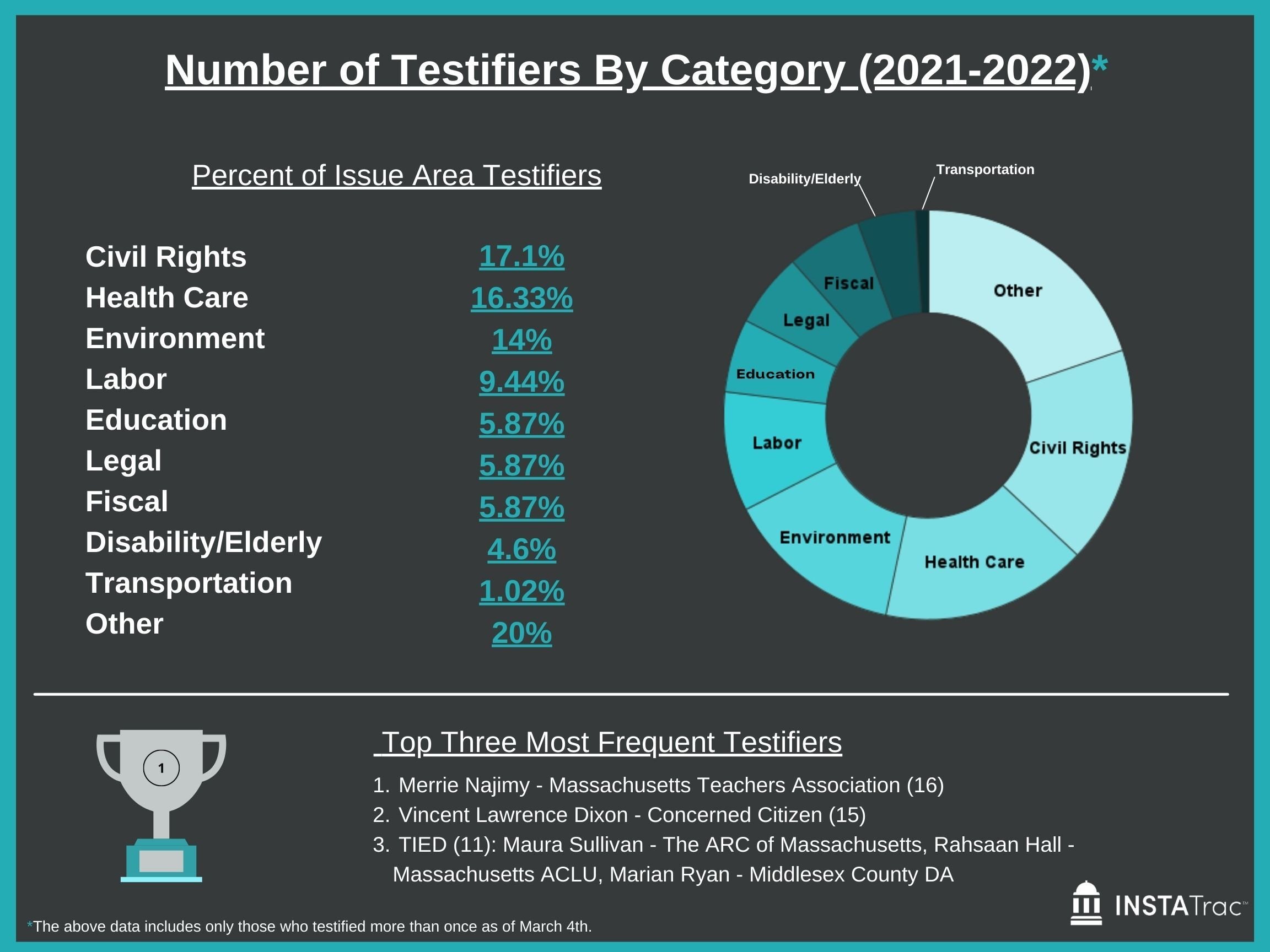
Top Testifiers in Massachusetts 2021-22
In the 2021-22 Massachusetts legislative session, there were over 3,000 people who testified at joint committee hearings. Our analysis found that 494 of these individuals were “frequent” testifiers, meaning that they testified in more than one hearing. This group included various state officials, interest groups, and concerned citizens, all of whom are highlighted in our data.

“Officially” Massachusetts
Ahhh. Massachusetts. So many stereotypes, so little time. While outsiders may associate Massachusetts with its iconic accent or inclement weather, in reality, there are so many other things that make us special. And of course, we want to share them. Click to view this session’s proposed “official” symbols of the Commonwealth.
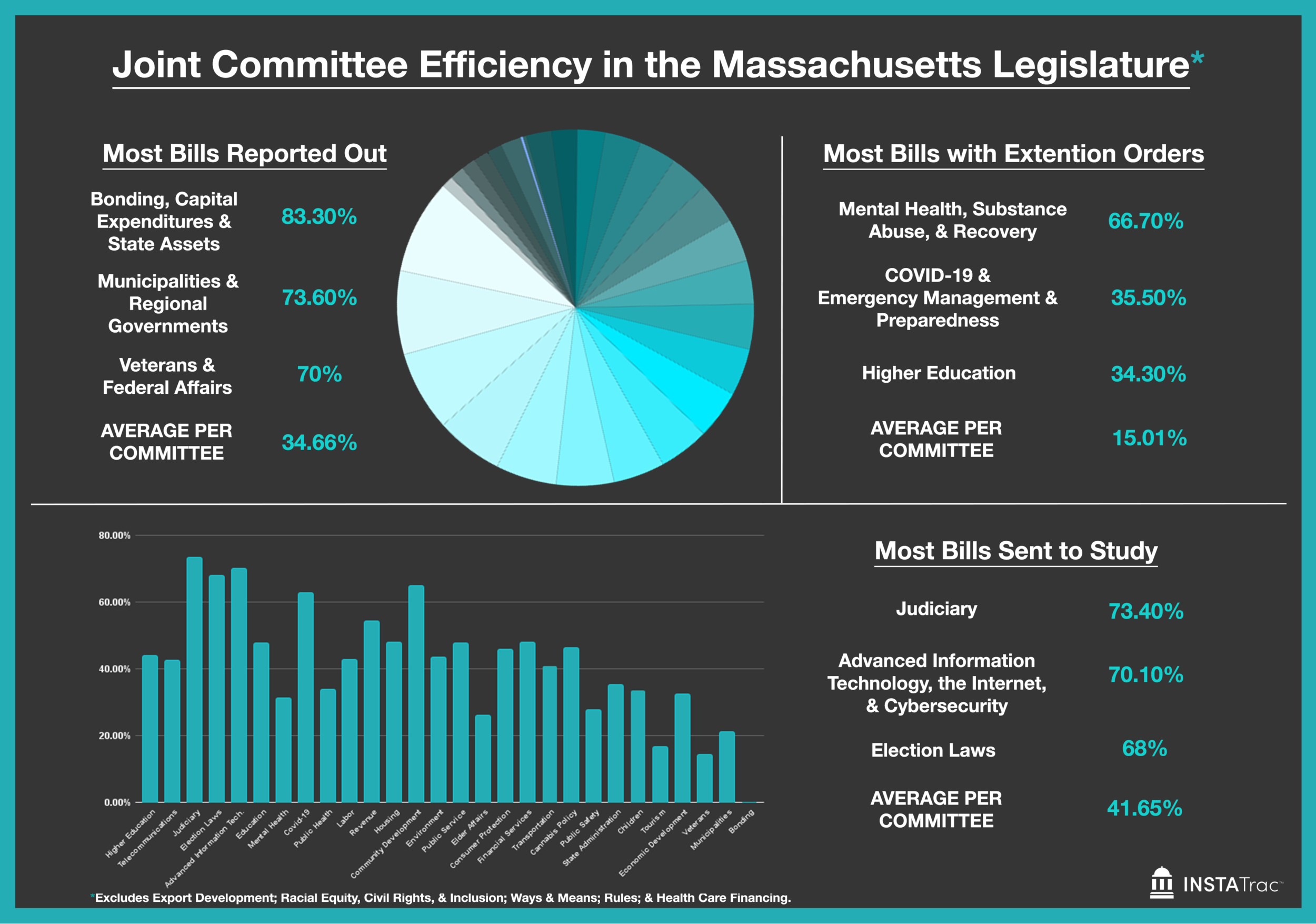
Joint Committee Chaos
The Joint Rule 10 deadline for this legislative session was set for February 2, 2022, by when (in theory) all legislation must be acted for further consideration on the House and Senate floors. The committee process in the Massachusetts legislature is notoriously elusive, but our data (as of February 11) reveals some interesting patterns.
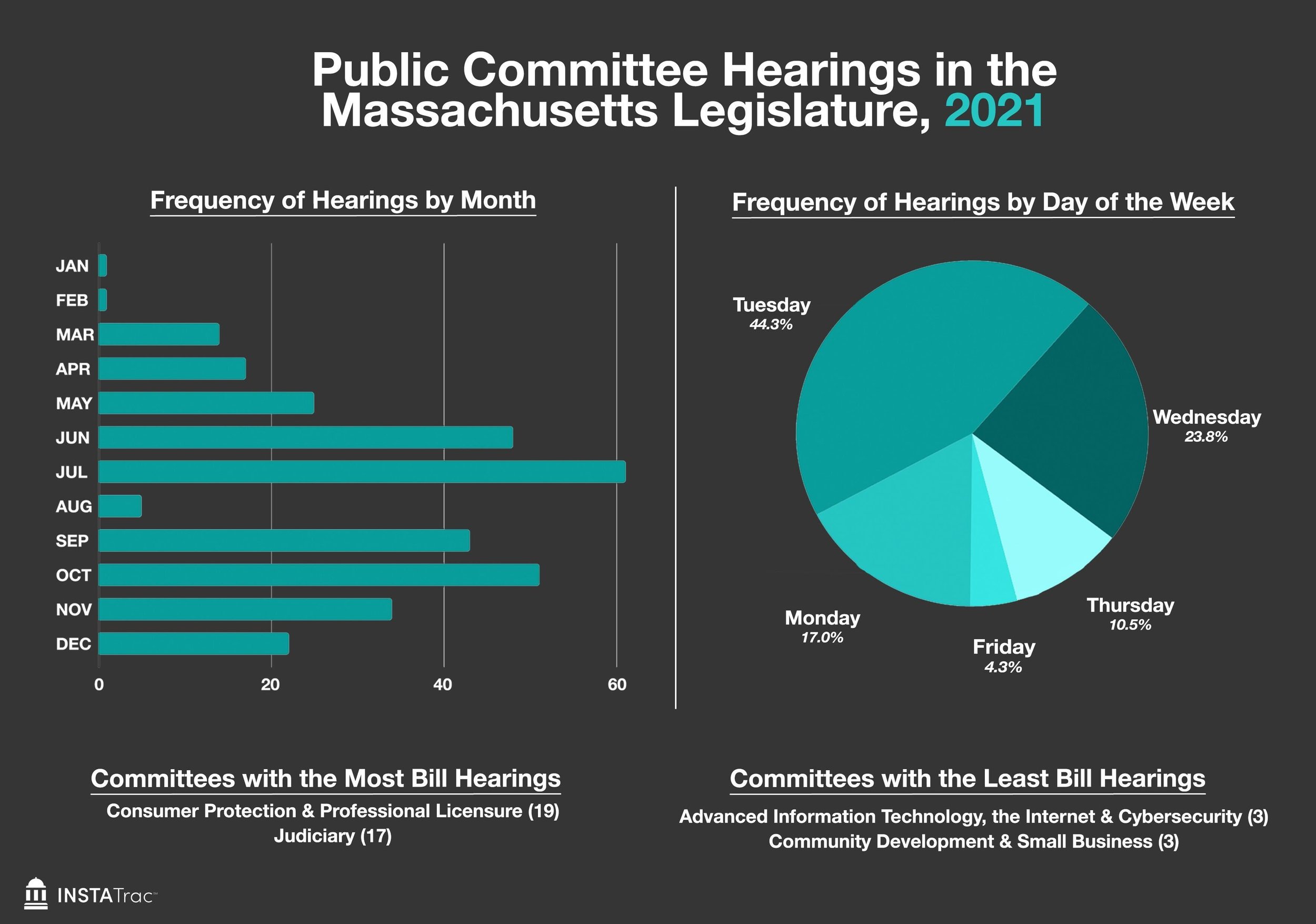
Tumultuous, Terrible Tuesdays
A review of the committee hearing calendar this session showed that nearly half of all committee hearings (44.3%) occur on Tuesdays of each week. Sometimes there are as many as 6 hearings occurring simultaneously! Hence, the nickname “Terrible Tuesdays”.
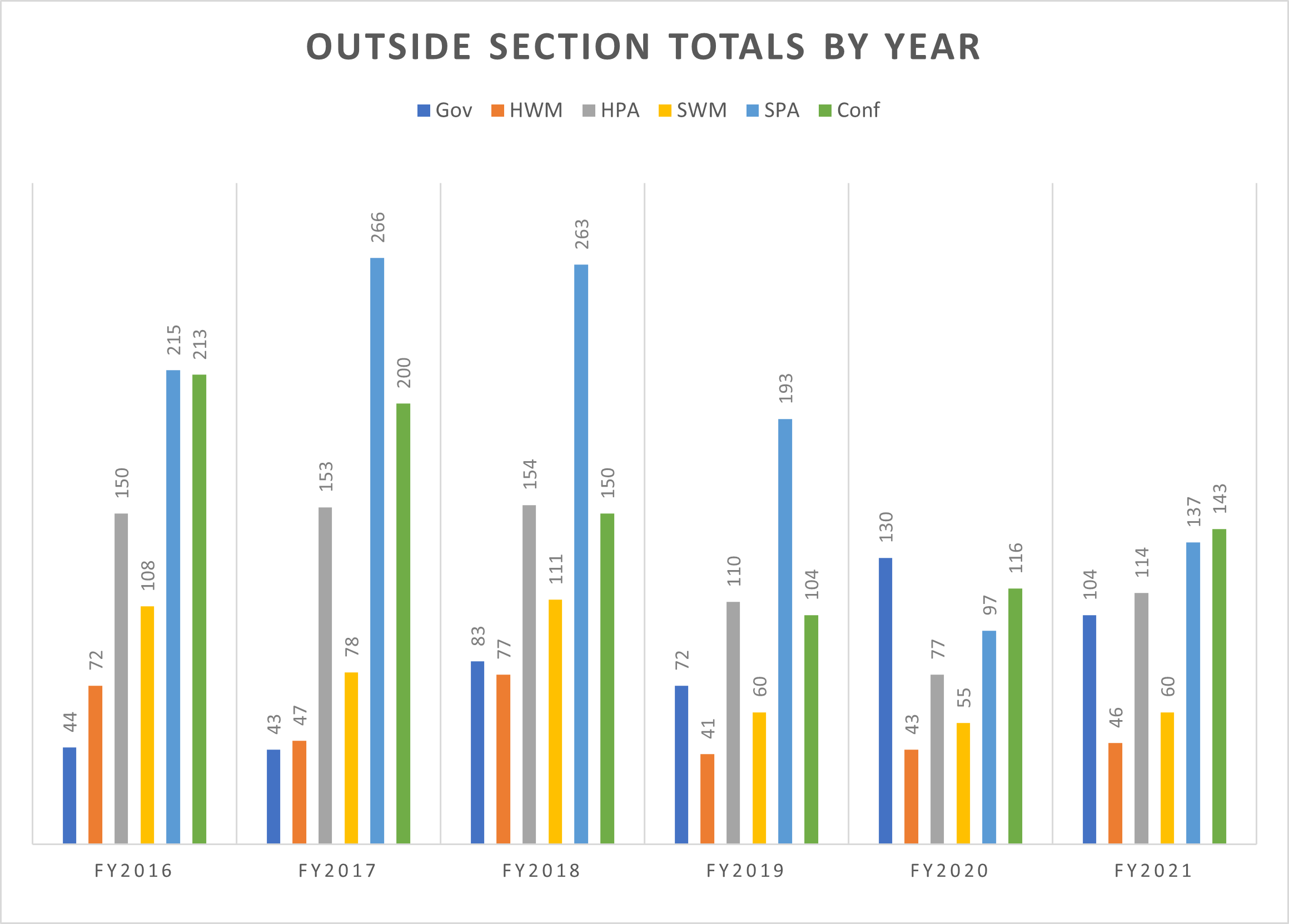
What do you call a bill that isn’t a bill…
The General Court calls it an outside section. While technically outside sections are only supposed to relate to appropriations, here in Massachusetts, they are often used to bypass the legislative process.
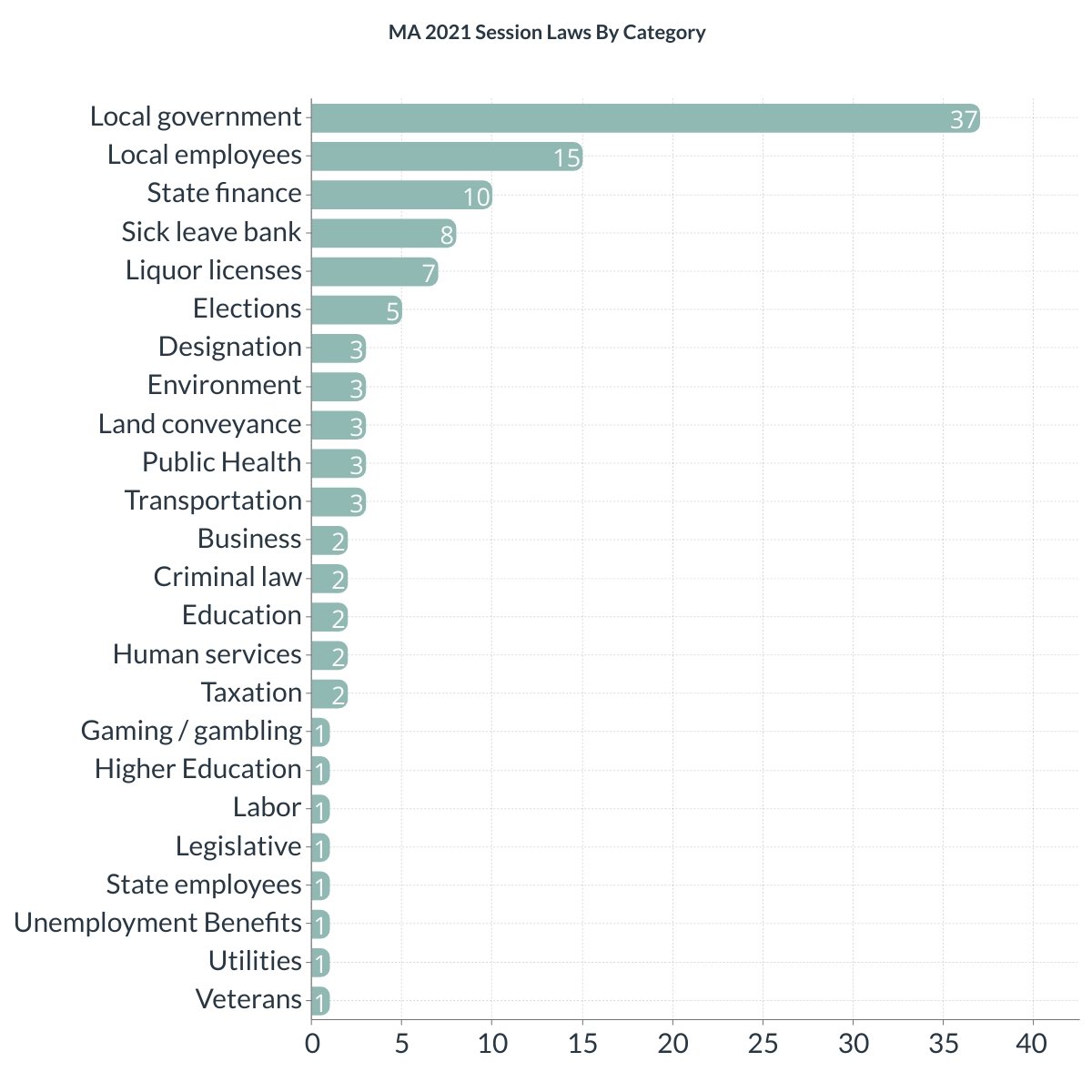
2021 - What DID they do?
Of the 7,817 bills filed to date, only 115 have become law during the first year of the 2021-2022 General Court session. That’s a mere 1.4 percent! What were those laws about? Two words: local government. Here's a quick look at 2021 session laws by category.
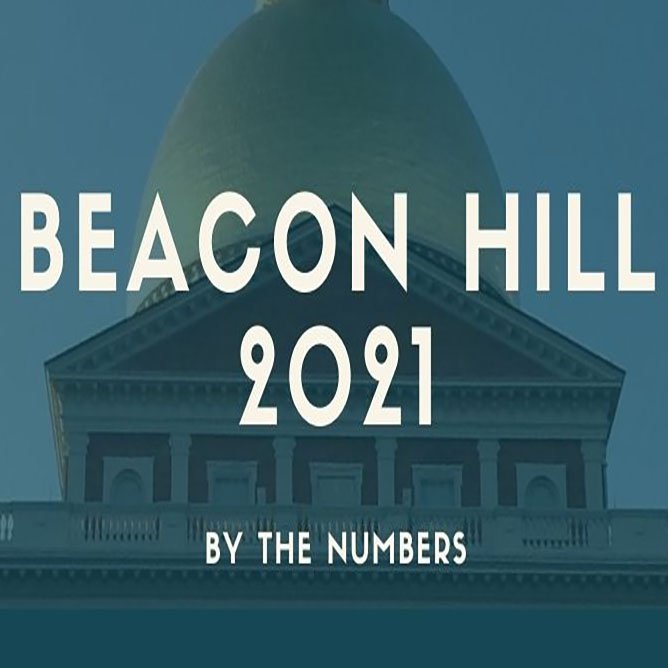
Beacon Hill 2021: The Year in Review
From the end of the pre-filing deadline to the start of winter recess, there is plenty of data to inform your efforts when the second half of the 192nd General Court begins in January. Check out our infographic to learn more!
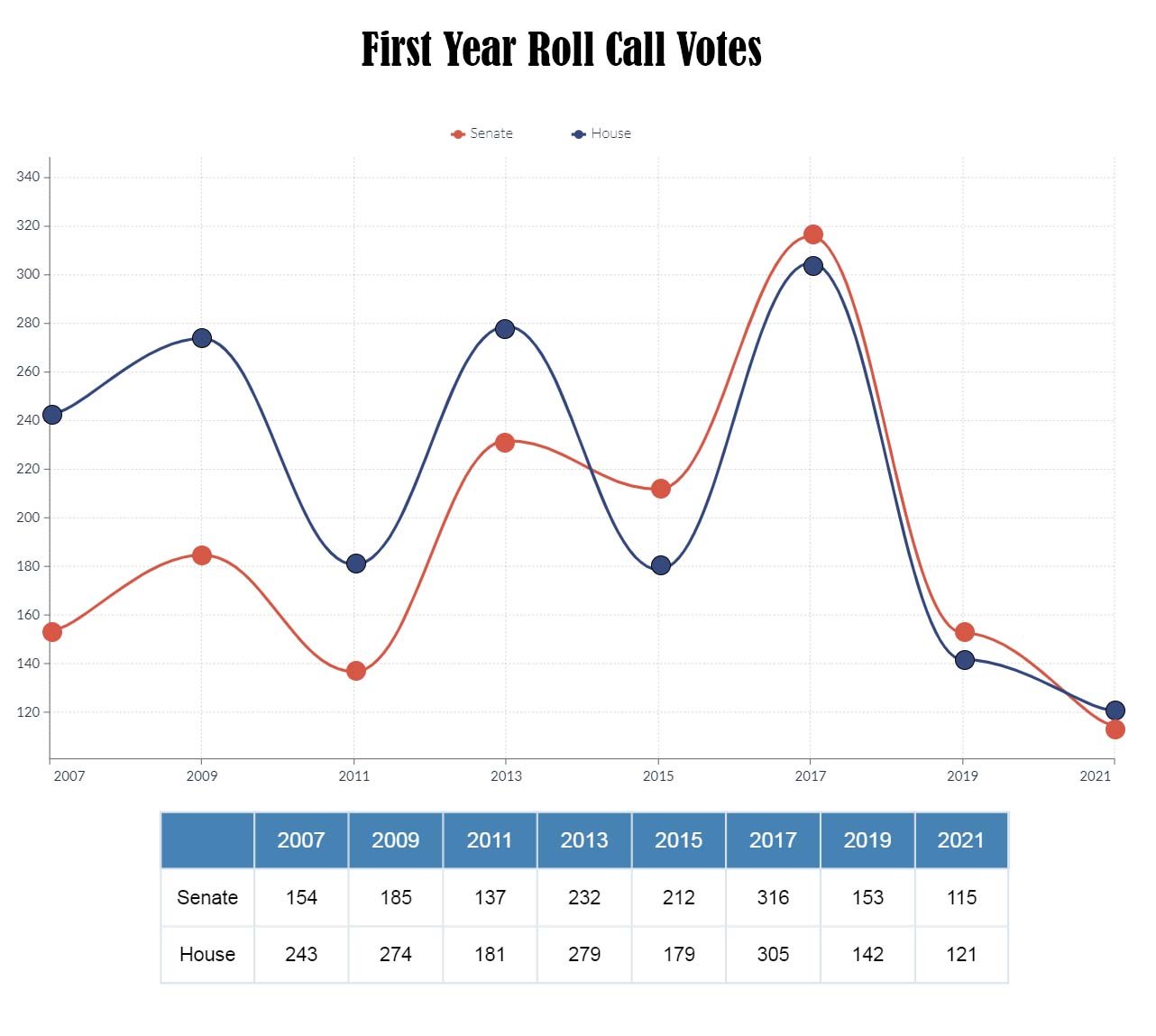
The Case of the Missing Roll Call Votes
As we near the end of the first year of the 2021-2022 two-year legislative session, we wanted to take a few minutes to review activity by the Mass Legislature. When it comes to roll call votes, the Statehouse is way behind.
